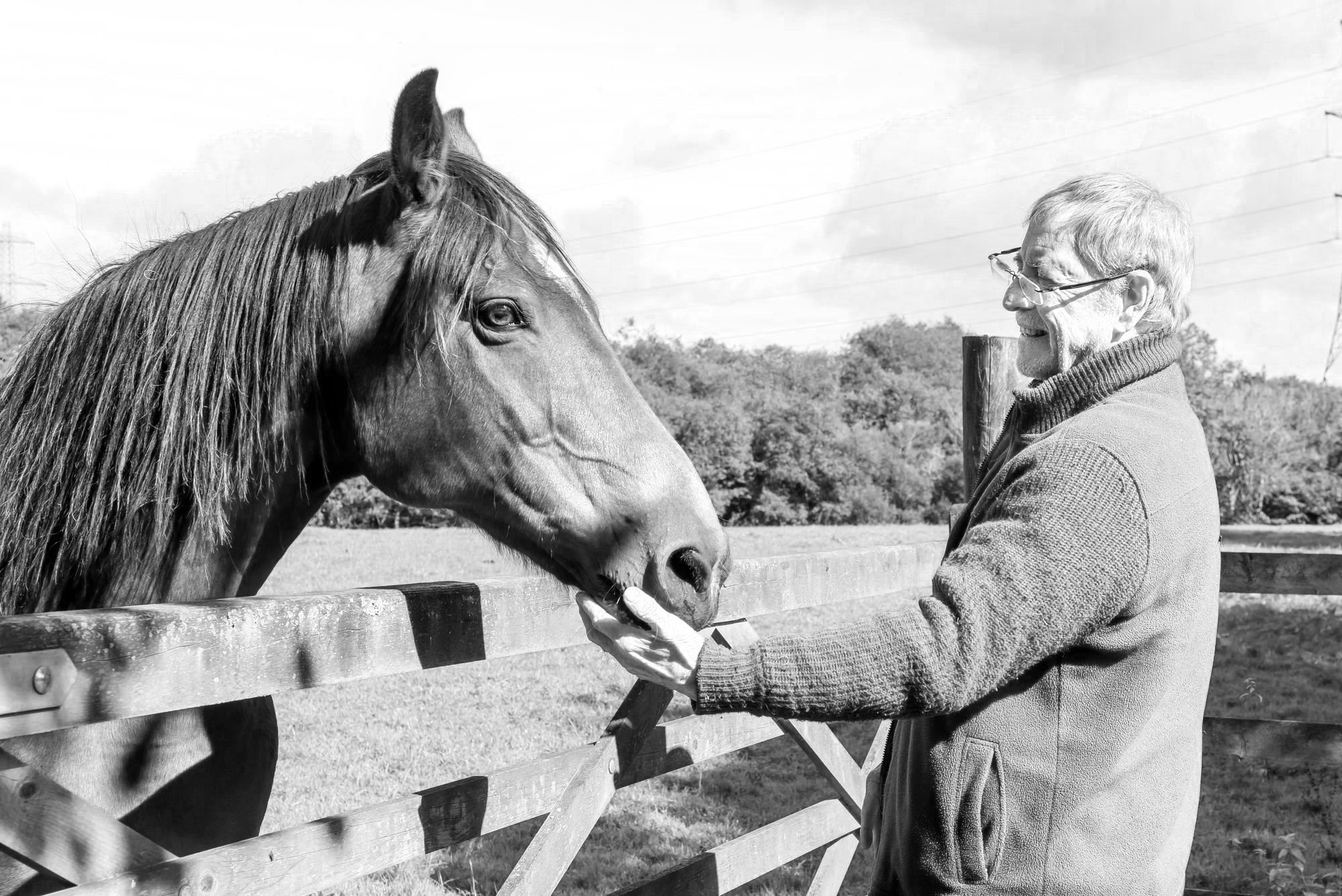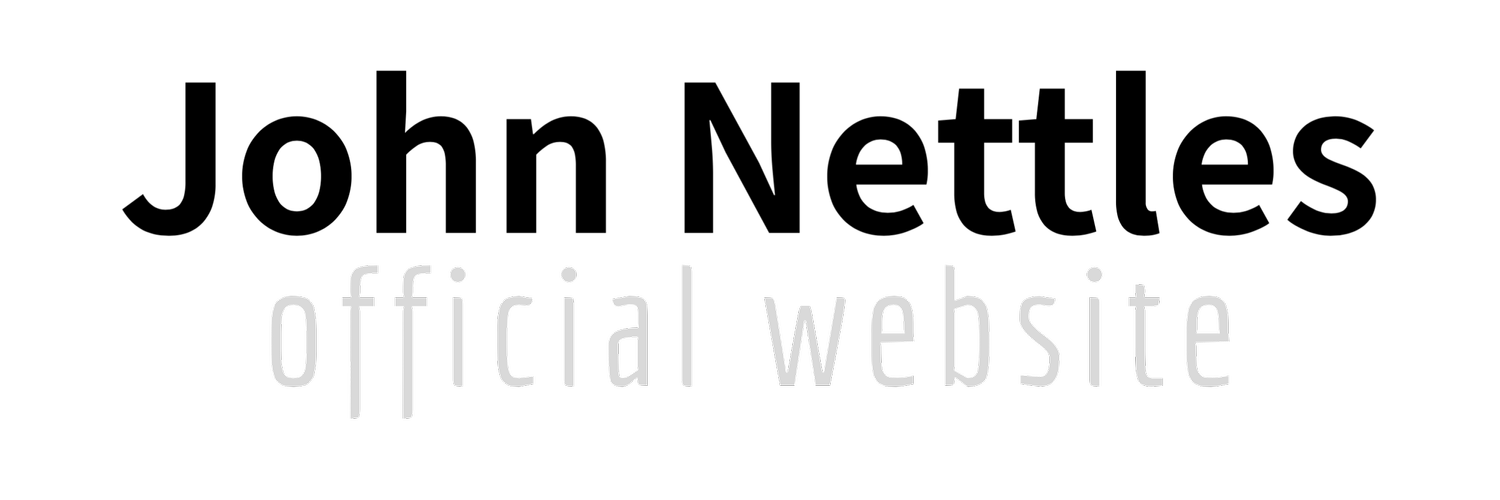
Deux Donkeys and a Dog
Hector was the first to arrive. He came from the rain washed coastal lands of Galway to the rain soaked fields of North Devon, fugitive from the ‘meat wagon’ was he – small but perfectly formed, small delicate feet, luminescent dark eyes, obligatory cross on the back and with that aura of spiritual significance which accompanies all donkeys. Beautiful to look at, certainly, but frightening to hear – stand him on the Hartland headland and he could do fine service as a foghorn. And it was Hector’s braying at unpredictable moments and sometimes for minutes on end that most certainly lost him the role of attendant-donkey-at-the-crib in the presentation of the Nativity play at our local church – that and his equally unpredictable doing what only he could do for himself whenever and wherever he liked. Hector was not pleased at this cruel enforcement of the health and safety regulations and he was even less pleased, if that were possible when he was denied a role in a film we were making extolling the virtues and achievements of the Mare and Foal Sanctuary down here in Devon(and of which I have the real honour and pleasure to be a patron.) To ease the pain of Hector’s thwarted histrionic ambition it was explained to him that the Sanctuary is very much in the business of rescuing horses and ponies suffering from neglect, ill treatment and disease to say nothing of providing loving and gentle care for old and broken horses in their twilight years. All this they do and do it marvellous well but sadly for sweet Hector, nowhere does the Sanctuary manifesto mention donkeys. Donkeys are looked after across the way in the Donkey Sanctuary near Sidmouth founded by the glorious Elizabeth Svendson way back in 1969. But we were making a film about horses, not donkeys and therefore there could be no part for Hector.
Now I have not so much knowledge of matters equine as would clog the foot of a flea but Cathy, my wife, does know a great deal and opined that Hector had become depressed and melancholic and would it not be a good idea to find him a companion to cheer him up? Of course it would. And so to Cornwall to a dilapidated farm just eastward of the huge viaduct by Liskeard that carries the Cornish Riviera express down to Penzance, there to find Hector’s new soul-mate, likewise an escapee from Galway, push and pull him into the van, thin, emaciated and reluctant as he was and carry him back across the Tamar to his new home. Now, it was perhaps a little unthinking and unwise to christen the new boy ‘Achilles’ given that in the Trojan wars Achilles, and his Myrmidons, had set about Hector, slaughtered him and at his ‘horses tail in beastly sort’ dragged his body ‘through the shameful field.’
In the event there was no such deadly confrontation. Hector and Achilles struck up an instant friendship and were inseparable, happily sharing the stable and the hay bag, strolling about shoulder to shoulder or vigorously wrestling each other – this last and spectacular activity only spoiled sometimes by the appearance of Bruce, a beautiful sprightly springer spaniel, poster-boy for the Schopenhauer Tendency and ever anxious to join in the commotion not realising that instead of charging and barking at our combative duo he might just be eating them! Often after such shenanigans and when Bruce has disappeared to terrorise the cats or badger the birds, our two friends will take up a position standing side by side at the corner of the large outbuilding up from the paddocks There they do stand, quite still and (mercifully) silent gazing fixedly out towards the east, ever the east, and they will hold this station come wind, hail, snow or biblical deluge. It can be extremely uncomfortable. There is no obvious material advantage to be gained. Why do they do it? That is the question. Now it has to be known that playing a TV detective for twenty-five years qualifies nobody for anything let alone an exploration of the divine aspect of equus asinus. Nonetheless and presumptuously I like to believe that they do have a reason for this behaviour I fancy that what they are doing is performing a silent service of remembrance, celebrating a race-memory that is within all donkeys as they gaze out towards a land far beyond our little village of Pyworthy towards the sea of Galilee where, on a famous Sunday, long years ago, one of their forebears got the celebrity taxi concession to carry the Messiah in triumph into Jerusalem. He had his hour, the hour of the donkey, on that great day One far fierce hour and sweet There was a shout about my ears And palms before my feet And more than this they might remember too, for, it is said, the little donkey loved Jesus so much that he followed him on the via dolorosa out of Jerusalem to Golgotha and it was here as the sun set over the Hill of the Skull, that the shadow of the cross fell upon the donkey’s back – and stayed forever there and on the back of every donkey ever since – a badge of God-given favour, a sign of Christ’s love, not for just one donkey but for all donkeys including Hector and Achilles. And it is this the two are celebrating, standing there turned towards the rising sun. If this is true, and I’m sure it is, we can all be very happy for them – it is beyond question, a very satisfactory state of affairs indeed. I only wish a scintilla of their gentle spirituality would rub off on Bruce but alas, he is completely lost to the world divine and forever in the thrall of earthly pleasures. Even as we speak he will be trying for unlikely congress with one of the large cushions in the living room or hurtling about the garden in forlorn pursuit of the nimble squirrel, impossible adventurer that he is – and a friend too, like Hector and Achilles who, because they are young now, loved and healthy will happily live on long years after my natural span. And this too is a very satisfactory state of affairs.
Published in Legacy of Love Book.
